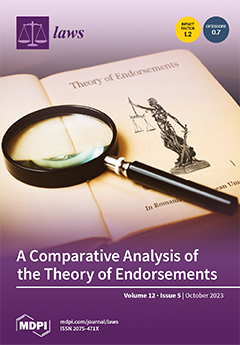Open AccessProject Report
Report on Enforcing the Rights of Children in Migration
by
Warren Binford, Michael Garcia Bochenek, Pablo Ceriani Cernadas, Emma Day, Sarah Field, Marci Hamilton, Ton Liefaard, Benyam Mezmur, Fasil Mulatu, Ann Skelton, Julia Sloth-Nielsen, João Stuart, Hans Van Loon and Jinske Verhellen
Viewed by 2082
Abstract
The ILA Study Group began its work by identifying guiding principles that should frame and inform state practices with respect to children in migration. These principles included, but were not limited to, non-discrimination; the best interests of the child; the right to life,
[...] Read more.
The ILA Study Group began its work by identifying guiding principles that should frame and inform state practices with respect to children in migration. These principles included, but were not limited to, non-discrimination; the best interests of the child; the right to life, survival, and development; the right of the child to express their views on all matters affecting them; and the right to an effective remedy. The Study Group identified some of the most common rights violations for children in migration such as arbitrary age assessment practices; inadequate and age-inappropriate reception policies and facilities; and immigration detention of children and other coercive practices. The Study Group undertook a multidisciplinary approach by summarizing the research documenting the harmful effects of these practices on child health and well-being. It surveyed (1) treaties and international instruments that might recognize a right or remedy for children on the move; (2) regional and international fora where the claims of children could be heard; and (3) the growing body of regional and international jurisprudence upholding the rights of children in migration. Finally, it identified gaps in the international and regional frameworks and formulated recommendations as to how to ensure children in migration are able to enforce their rights and access justice.
Full article





